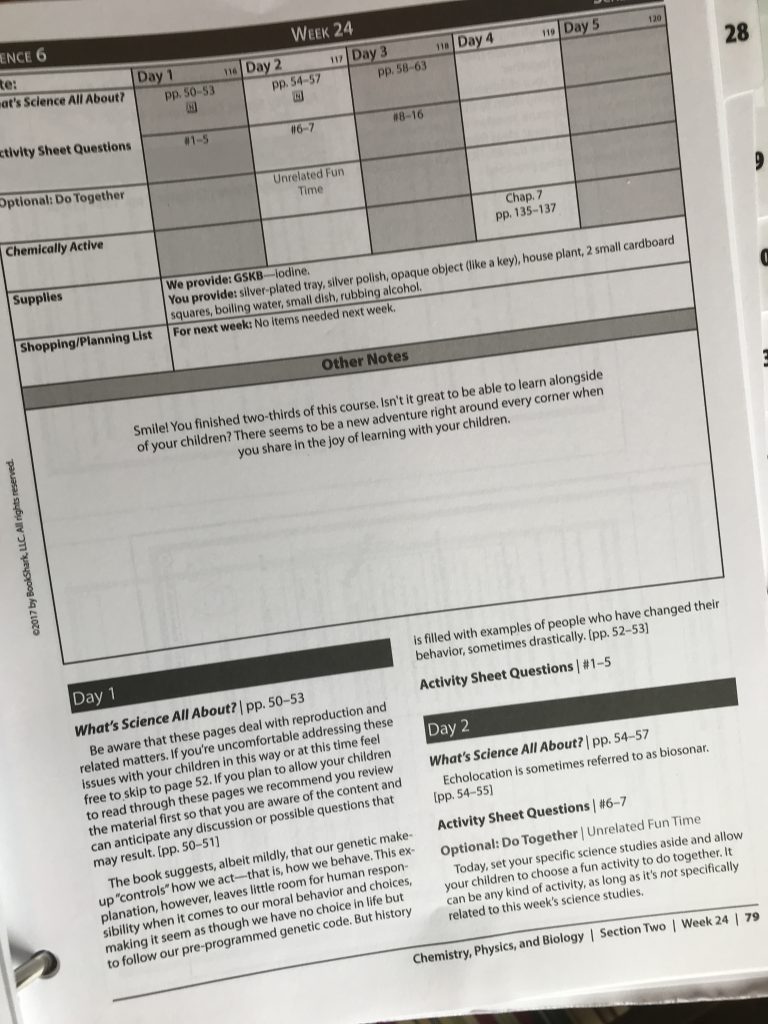People have a perception of what OCD looks like. As it turns out, it can present differently in gifted children, which makes homeschooling a great option for these differently-wired kids.
This post was sponsored by BookShark. I’m a BookShark ambassador because I love the curriculum (in other words, I’d tell you about it anway).
It wasn’t what you were expecting – not at all.
You knew what OCD was supposed to look like:
Compulsive handwashing
Obsessive organizing
Constant tapping
That’s not what was going on with your child.
Your child was worried – very worried. She would come to you with odd concerns.
“What if I’m trying to kill somebody, mama? What if I try to steal a knife from the kitchen? A hammer from the toolbox? Is there something wrong with me? Am I okay?”
So, of course, you reassured her. But the thoughts wouldn’t go away, and in time they grew more insistent. They began to impact her way of life and her ability to function.
She couldn’t sleep. She wouldn’t eat, play with friends, or hang with her siblings. A cloud of worry settled over her and wouldn’t go away. You took her to a counselor expecting to hear the word “anxiety.”
Instead, you got a crash course in obsessive-compulsive disorder. Like I said – not what you were expecting at all.
I’m a homeschooling mom of three differently-wired children. All gifted, two with sensory issues, and now one with anxiety and OCD.
While she’s battled anxiety since preschool, the last few months had been markedly different. The worry and anxiety had become an obsession. Her limbic system was in overdrive, stuck in flight gear without a way to turn off. I didn’t make the OCD connection, however, because she wasn’t behaving like Adrian Monk. Instead of lining up toys or obsessing over the layout of her clothing, she was fixated on – and compulsive about – the terrifying thoughts in her head.
This created a devastating feedback loop. My funny, fun-loving child was a shadow of her former self. A one-time social butterfly, she could barely hold a conversation without asking one of us if she was going to Hell.
And I became all the more grateful for homeschooling.
Despite this child being my social kiddo and the fact that under typical circumstances she would probably thrive in school, I can’t imagine what her life would be like right now if she were in a classroom. I don’t think that at this juncture, she would have access to the necessary tools and coping skills. Just as homeschooling has provided the perfect environment for my gifted daughter with sensory processing disorder, homeschooling is providing the perfect environment for my gifted kiddo with OCD. It provides the flexibility and the space she needs to learn coping mechanisms and heal from the trauma OCD continues to cause her.
4 Benefits of Homeschooling a Child with Anxiety and OCD
Homeschooling Facilitates Therapy
I love that I can make appointments for her during the day. We’re not rushing after school to make it the therapist. We’re also not digging into her homework time or other responsibilities: for an anxiety-prone child, the alternative would be disastrous.
Homeschooling Provides a Safe Space to Practice Coping Skills
Because we are at home, my daughter doesn’t have to fear the possibility of sticking out. If she’s worried or quietly obsessing about something she doesn’t have to hide it. She can bring it up and we can work through it together.
Homeschooling Facilitates Brain Breaks
One of our therapist’s recommendations is to take brain breaks when she is struggling with her OCD. Part of learning to cope with the disorder is developing new wiring pathways within and around the limbic system, essentially training her brain to look the other way.
Play is particularly helpful for this, and since we homeschool, we can take a break and go outside. We can also switch to game-schooling or some other form of learning through fun activities. She doesn’t have to sit in her seat and stay focused on one particular task.
Homeschooling Allows For Flexible Curricula
When you have a child with a brain disorder, it can be really hard to stay on top of the course and sequence of your curriculum. Since we are homeschooling our child with OCD, we’ve been able to choose and modify a course of studies that works with – not against – her needs and talents.
Take our science curriculum, for instance. BookShark is rigorous and provides the academic challenge she craves. But it’s also extremely comprehensive, and if we were attempting to stick to every facet, my daughter would be worried about falling behind.
But this is what I love about BookShark. It’s built with flexibility in mind. BookShark understands that a child’s education is more than just the work she completes in a classroom setting: it’s about fostering a spirit of inquiry from living (and loving) life.
How does this work in a practical sense? First, BookShark schedules “unrelated fun time” into our already-shortened four day week. The Instructor’s Guide specifically states the kids should choose an activity totally unrelated to their science studies for the week as a way to help them develop ownership of their studies, become invested in their passions, and enjoy time together as a homeschool family.

Secondly, because BookShark is a literature-based curriculum, we’ve been able to pick and choose what we feel up to reading, and when. The unit on plant biology has the potential to keep us super busy, not just with reading about plants and their growth cycle, but building planters and observing their actual growth.
We started this unit right about the time her OCD intensified, following the directions in TOPS Radishes to set up our radish nursery. But my kiddo began to worry about her inability to properly care for the seeds under the different growth environments. We’ve since put the experiments with TOPS Radishes and TOPS Corns and Beans on hold, waiting until she’s weathered more of this particular storm.
While I wish this season of our life weren’t so difficult, I am grateful for the educational choices we have made thus far.
It has alleviated much of the pain and suffering our differently-wired kiddos might have faced otherwise.
It’s a decision that has enriched our lives.
[rad_rapidology_inline optin_id=”optin_1″]
Enjoy this post? Read on:
5 Reasons I Love BookShark Science: the Perfect Literature-Based Curriculum for Gifted Kids
Gifted Parenting 101: The Not So Formulaic Guide to Raising the Differently-Wired


Heard you on Good Things Radio, and couldn’t help but think of my favorite phrase; ‘Your mess becomes your message, your test becomes your testimony’
God bless you for sharing your story!
Thanks, Sara! I love that phrase – might have to adopt it!